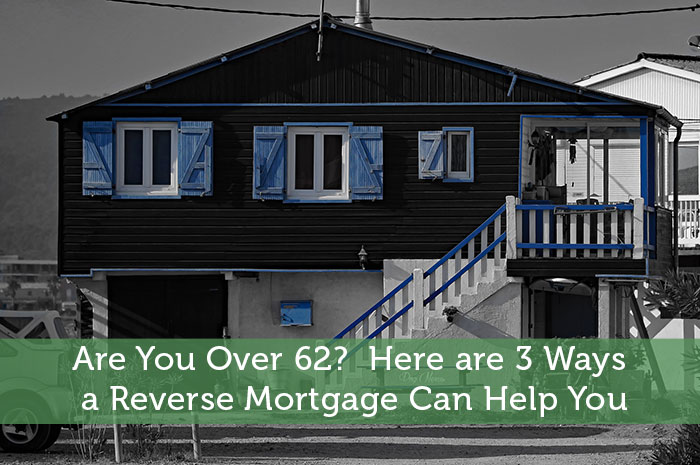Even if you are not over 62, you have seen the commercials and read the articles. Reverse mortgages are extremely popular now, but the benefits are often misunderstood. This is especially true when you are struggling to make ends meet and are faced with uncertainty during retirement. However, you don’t need to despairhere are three ways a reverse mortgage can help you during retirement.
As the moniker applies, a reverse mortgage is not like a traditional mortgage. The reverse in a reverse mortgage is that the borrower is not required to make regular monthly mortgage payments during the life of the loan. All that a borrower need to pay during the life of the loan are the taxes, insurance, and other fees related to maintaining the property. Now a reverse mortgage is only for your primary residence and a portion of the proceeds must be used to pay off any existing mortgages.
As such, reverse mortgages have several benefits over home equity loans. While these loans are only for borrowers over the age of 62, they are becoming an important option for seniors around the country.
1. Improved Monthly Cash Flow
Assuming you qualify for a reverse mortgage, then one of the first benefits is how it helps you to improve your monthly cash flow. Think about it, a reverse mortgage freezes your monthly mortgage payment. Instead of using those funds to pay your mortgage, you can save that money, or use it to cover other expenses. This approach can literally free up hundreds of thousands of dollars over the life of the loan.
Even if you have bad credit, a reverse mortgage might be a good idea. While some lenders do check credit scores, the basic requirement for these loans is to prove that you have enough income to keep your utilities, insurance, and property taxes current. As such, creditworthiness is not viewed in the same way for a reverse mortgage as it is for a traditional mortgage. In the end, a reverse mortgage is a great way to improve your monthly cash flow.
2. Buy a New Home
Whilst a reverse mortgage can help you freeze your monthly mortgage payment, it can also be used to help you buy a new home. Now you are asking what is the catch? It’s pretty simple, the new home must become your primary residence.
If the new home will become your primary residence, then you can use the HECM for Purchase reverse mortgage to buy a house. This program allows seniors to purchase a house for their retirement without needing to waste their hard-earned dollars on a mortgage payment.
In addition, using a reverse mortgage to buy a home for retirement is a way to ensure that your savings will remain intact during your retirement years. Granted, you will need to come up with the cash for closing costs and the down payment, but you are saving on your monthly mortgage payments.
Recommended Mortgage Posts:
3. Limit Tax Exposure
As you probably know, the gains from the sale of your house are subject to capital gains. But there is a way to limit your tax exposure and this is to use a reverse mortgage to tap into the equity in your home. Moreover, there are no strings attached to the use of funds. Granted there are some exceptions to the capital gains rules. But the devil is in the details and the $500,000 exclusion does not apply to everyone and a reverse mortgage may be a better way as it allows you to access this cash without the implications of a sale.
A reverse mortgage can help you to make sure you have enough money for your retirement. However, these loans are not for everyone, especially those with a high mortgage balance on their existing home. In addition, the loan will need to be repaid once the home is no longer your primary residence. Government-insured reverse mortgages are ‘non-recourse loans. This means that you won’t have to pay the balance due if your home sells for less than the balance due on your reverse mortgage. As such, an increasing number of borrowers over the age of 62 are coming to see how reverse mortgages can help them.
Related Investing Product Reviews:






While there are some advantages to a reverse mortgage, it’s very important that seniors understand the drawbacks as well. For example, if you are no longer able to live on your own and need to move to an assisted living facility, the mortgage becomes due at exactly the time you are faced with the expenses for your new living arrangement.
As the article describes, yeah it is very popular nowadays to apply for a reverse mortgage.
If you are facing foreclosure, a reverse mortgage could be a great way to stop it when you are an elder but not the only one. Also consider others options, for example, applying for VA Loan.